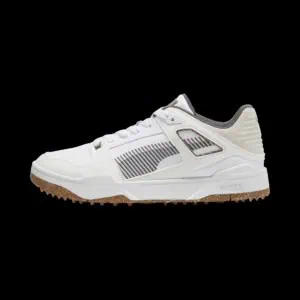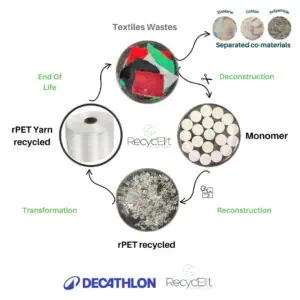Four golf companies in the Top 500 ranking
Puma, Husqvarna, Polo Ralph Lauren and Decathlon have made it onto the list of the World’s Most Sustainable Companies of 2024.
This makes them the only four companies that are also represented in the golf sector, whether with shoes, clothing or – in the case of Decathlon – other golf equipment.
Husqvarna is represented in greenkeeping with its robotic mowers and other equipment such as hedge trimmers.
The ranking was compiled by TIME magazine and Statista.
A total of 500 companies were selected from a pool of 5000 companies and examined with regard to 20 sustainability data.
These included the CDP rating, the agreement with the UN Global Compact and the Science Based Targets initiative, the listing in the S&P Global Sustainability Yearbook, participation in the UNFCCC Race to Zero and ratings by MSCI ESG & SRI.
Communication and reporting as well as key performance indicators in the area of the environment were also evaluated.
This resulted in a maximum score of 100 points.
The list is headed by Schneider Electric from France with 88.86 points.
Puma came 67th with 73.02 points, Husqvarna 65.63, Ralph Lauren 280th with 60.71, Burberry 258th and Decathlon 382nd.
We asked Joanna Czutkowna, founder of 5Thread and specialist in sports fashion and sustainability, what makes the clothing products from Puma, Ralph Lauren and Decathlon stand out.
Why are these companies more sustainable than others?
Puma has pioneered many circular initiatives in recent years, which are now being implemented on a commercial scale.
Their RE:FIBRE project uses used textiles to recycle them into new soccer jerseys, so that from the 2024/25 season all replica soccer jerseys will be made from RE:FIBRE materials.
This project can also be transferred to other sports such as golf.
The company has also raised awareness of the need to extend the life of garments and recycle them.
Earlier this year, they held an upcycling workshop in collaboration with Mercedes F1 and Raeburn, a responsible design company, which was attended by F1 drivers Lewis Hamilton and George Russell.
By involving the athletes, the reuse of clothing is normalized and the importance of extending product life is highlighted.
Puma has also partnered with Raeburn to develop a range of sportswear for Mercedes F1 using fabric scraps from the factory.
These examples serve as good best practice examples for golf and demonstrate the importance of cross-brand collaboration, engaging athletes and viewing waste as a resource. Polo Ralph Lauren has set itself the goal of manufacturing products “on purpose” using sustainable materials and responsible design and manufacturing practices.
By 2025, the company wants to connect more customers with circular business models such as rent, repair and recycle and increase the amount of renewable energy it uses.
They use science-based targets and certifications such as Cradle to Cradle to measure and monitor their impact. Decathlon has set itself the goal of being carbon neutral by 2050 by switching to renewable energy sources and using more sustainable materials.
The company has started to measure the individual carbon footprint of many products, which it shares with customers online and in-store.
This allows customers to see the impact of a product at the time of purchase and make their decisions accordingly.
This level of transparency is rare in the apparel industry and shows that Decathlon is not only committed to measuring its impact, but also being transparent about it.
Decathlon also invests in products to make them durable and to design them in such a way that they can be repaired.
This opens up a whole new range of business models for Decathlon, including resale, rental and repair.
Decathlon was the equipment sponsor for the 45,000 volunteers at the Paris Olympics, providing an estimated one million items of clothing.
This project was a catalyst for the company to accelerate significant change towards more sustainable materials and manufacturing.










